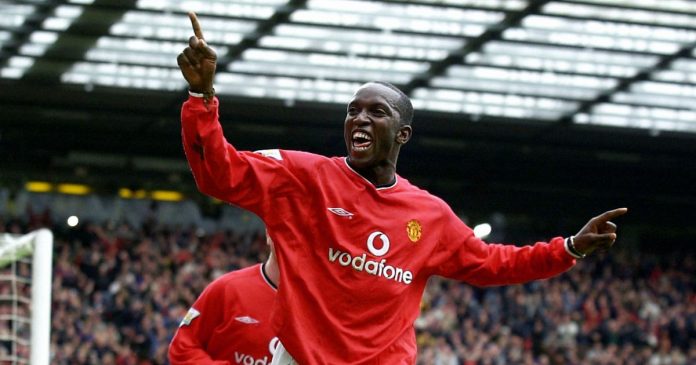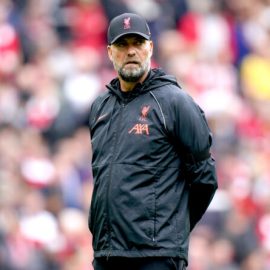A Portsmouth landlady is scheduled to go before the European Court of Justice tomorrow in her bid to appeal against a ruling made on behalf of Rupert Murdoch‘s vast BSkyB conglomerate prohibiting her from showing live Premier League games at her pub, The Red, White & Blue in Southsea.
Karen Murphy has been embroiled in the tumultuous saga since deciding, at the behest of her then-brewery, to opt out of the Sky monopoly in 2004 by subscribing to Greek satellite station NOVA (via an imported decoder card) in order to show top flight games at 3pm on a Saturday after becoming unable to sustain the £1,000-plus monthly fees she was paying to Sky Sports for the privilege;
“I think you’ll find that most publicans will try and find another way of showing football. In fact quite a lot of them do. I think it’s only the larger chains that can afford to pay the Sky prices. A lot of pubs have taken Sky out – they simply can’t afford it.”
NOVA‘s monthly subscription charges were approximately less than 65% of what Sky were charging, but unfortunately the fact that Murphy wasn’t screening live football via the authorised broadcaster (Sky) meant that she was in direct breach of some of the UK’s most feverishly policed copyright laws.
Shortly upon hearing of the ploy, officials working on behalf of Football Association Premier League Limited (FAPL) – the company that protects the media interests of all 20 Premier League clubs – began legal action against Murphy, resulting in an enforced £8000 compensation payment.
Murphy has also been twice taken to court by the Media Protection Services (MPS), a company which protects the rights of broadcasters) for breaching Sky’s copyright in this country.
During her first suit, she successfully argued that she had been unaware that she was breaching copyright law by using NOVA, however her second appearance on the same grounds saw her unsurprisingly convicted.
She appealed to the High Court in London over the sentence, but the presiding judges admitted that the relevant laws were so convoluted that they were unable to ascertain whether or not the appeal was valid. The case was duly passed on to the European Court of Justice, and tomorrow Murphy and the MPS will have 20 minutes to argue their cause.

Outwardly, the case seems to be a fairly straight-seamed ‘plucky independent takes on the corporate greed machine’ affair, a distinction that Murphy herself is aware of;
“I think it’s unjust. I think it’s a greedy private company trying to dictate to the small people what they can and cannot do, purely for profit. The law needs changing. If I don’t fight who is going to fight?
If I wanted to go and buy a car, I could go to any garage I like. Me, as a publican, if I want to show football, I can only go to the Sky garage, and have to pay 10 times the price of anybody else [in Europe]. I don’t believe that’s fair.”
Should she lose the case, the exorbitant fees and fines will mean that the Red, White & Blue will probably fold. However, the implications of Murphy emerging victorious will be far more considerable that any personal sense of vindication she may feel.
Murphy claims that, by restricting her choice of satellite providers to a single broadcaster, the Premier League are in breach of the European Union’s core principle of a free market as well as allowing BSkyB, through their almost boundless financial reserves, to completely monopolise the UK’s broadcasting market.

Should she win, the sway that the Premier League has over it’s European image rights could be hugely undermined.
Economics analyst Frank Dunne thinks that Murphy’s case could revolutionise the way in which football rights are bought and sold across the entire continent, likening it to the way in which Jean-Marc Bosman single-handedly changed the manner in which football transfers were conducted in 1995;
“This case has the potential to become the ‘Bosman’ of broadcasting. The doomsday scenario for rights-holders (the Premier League) is that their ability to sell their content on an exclusive basis by individual European territory, charging different rights fees according to the size of the individual market, will be undermined.
Nobody seems really sure how rights sales would work if that system were ruled to be in breach of European law on the free movement of goods and services.”
The Premier League attempted to sue Youtube in 2007 for allowing football to be uploaded to the site thus infringing copyright, but they failed dismally as the video-sharing site argued that they had done all they could to aid the Premier League to take down offending videos themselves. Dunne believes this could be a positive omen for Murphy;
“The Premier League is confident that it is going into the case with strong arguments, but it was also confident of its arguments when doing battle with YouTube in the New York courts, and it lost that one.”
On a relatable level it’s hard to see what such changes would bring about. What is certain is that an increasing number of landlords and ladies are finding it difficult to balance the books whilst shelling out for Sky coverage.
BSkyB bid nearly £300 million more than it’s nearest rivals to purchase the exclusive rights to broadcast Premier League games and it’s this seemingly superfluous spending that in turn hikes up their charges to near unaffordable levels.
Decoder cards ensure that purchasing rights is still relatively small scale venture but, by opening the market on to a vast Europe-wide scale, it would surely serve to further reduce the amount of broadcasters that could afford to purchase such all-pervading licenses – thus meaning that the monopoly will become even more exclusive than it was previous, feeding the already-bloated Sky monster’s appetite for consumption.
Even if the ‘little (wo)man’ wins the battle, she sure as sh*t isn’t going to win the war.
Add Sportslens to your Google News Feed!






